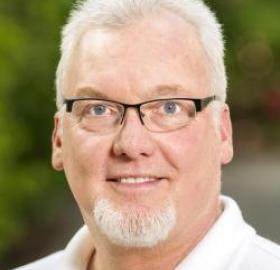Steven Hackett
Professor
For several decades Professor Hackett's academic work has been focused on the economics of clean energy, the environment, and natural resources. His responsibilities have ranged from faculty member and senior consulting research economist to chair of several academic departments and service as associate dean.
Professor Hackett is privileged to be a faculty member in a number of interdisciplinary programs: Environmental Science and Management, Energy Technology and Policy and Environmental Studies. In his prior appointment as a member of the Economics faculty at Indiana, he was honored as a faculty associate at the Workshop in Political Theory and Policy Analysis.
In addition to his academic work, Professor Hackett has provided supervision and leadership on numerous projects related to clean energy economics, fisheries economics and economic development.
For more information please check out Steve's FRESCA webpage.
Early in his career Hackett's research was focused on social dilemmas associated with common-pool resources, and on the effectiveness of various common-property approaches in resolving these dilemmas. He was particularly interested in the challenges of structuring successful collective-choice arrangements when stakeholders are heterogeneous in various ways. His research approaches involved developing theoretical models and evaluating testable hypotheses through the use of laboratory experimental methods. Another line of his research involved the use of economic modeling approaches to understand the political economy of environmental regulation. In several papers Hackett investigated how voluntary actions by firms to limit pollution can have strategic value relative to competitors, or as a way of shaping future regulatory policy. More recently Hackett has worked collaboratively on a number of projects addressing the economics of fishery management. A primary focus of this work was on understanding the economic challenges associated with the West Coast's Dungeness crab fishery and its associated processing sector.
Dr. Hackett has published in a variety of scholarly journals and edited volumes, including The Journal of Law and Economics, Journal of Environmental Economics and Management, Journal of Law, Economics, and Organization, Journal of Economic Behavior and Organization, Economic Inquiry, Japan and the World Economy, the Journal of Theoretical Politics, the International Journal of the Economics of Business, The Encyclopedia of Globalization, Water: Science and Issues, California Cooperative Oceanic Fisheries Investigations Reports, Marine Resource Economics, and California Agriculture. His research on California's Dungeness crab fishery (in collaboration with colleagues at Humboldt and at UC-Davis) received the 2005 gold award for best refereed journal article by the Association of Natural Resource Extension Professionals. He is author of the textbook Environmental and Natural Resources Economics: Theory, Policy and the Sustainable Society 3rd edition (New York: M.E. Sharpe, 2006), which has been adopted at colleges and universities around the US. His research has been supported by extramural grants and contracts from organizations such as the National Science Foundation, the California Sea Grant Program, the California Seafood Council, the HSU Foundation, and the Institute of the North Coast. In recognition of his research into regional economic issues, and what Humboldt President Rollin Richmond described as "the clarity and significance his work brings to global questions of environmental economics," Hackett was selected as Cal Poly Humboldt's Scholar of the Year for 2005.
Dr. Hackett has also been active in regional economic development. For example, Hackett will be leading the process of developing the economic element for the City of Fortuna's updated General Plan, which should be completed by 2007. Hackett served as a senior consultant on the development of the City of Arcata's Economic Development Strategic Plan (2004), which won an American Planning Association award in 2005. He founded Humboldt's Office for Economic and Community Development (2002-03). He serves on the Board of Directors for the Center for Environmental Economic Development (CEED) in Arcata, and was co-author of the 2002 CEED report Reinvesting in Jobs, Communities and the Environment: Benefits and Costs of a Road Removal Program on National Forest Lands. He wrote a brief economic history of Humboldt County published in the Times Standard titled "The Humboldt County Economy: Where Have We Been and Where Are We Going?" (1998), elements of which were used in Prosperity! Humboldt County's Comprehensive Economic Development Strategy. He co-founded the Index of Economic Activity for Humboldt County (1996), and in the 1990's served as Chair of the Economic Development Committee of the City of Arcata.
Currently Dr. Hackett is working on three funded projects which include:
Socioeconomic dimensions of MPAs: Establishing a baseline and assessing initial changes in California's North Coast fisheries. 2014-17, Grant support from the California Sea Grant College Program and the California Ocean Science Trust. Collaborators are Laurie Richmond (EMP, Humboldt), and Ecotrust/Point 97, along with collaboration with the California Department of Fish and Wildlife. The purpose of this project is to establish baseline socioeconomic conditions for commercial fishermen and commercial passenger fishing vessel operators in the MPA area, as well as assess initial changes in fishing patterns and other activity in response to MPA formation.
Sustaining Fishing Communities by Enhancing Value in a Landings-Constrained Environment. Grant support from the California Sea Grant college Program and the USC Sea Grant program. 2011-2014. Collaborator is Ana Pitchon at CSU-Dominguez Hills. Humboldt student RAs include Nathan Freney and Brett Poirier, and the research associate is Doreen Hansen. The purpose of this project is to identify strategies that help sustain fishermen and fishing-dependent communities in the context of increasing constraints on commercial landings.
CalWave wave energy feasibility and siting analysis. 2014. Collaborators include SERC and Cal Poly SLO. The purpose of this project is to evaluate several candidate sites in California for developing a wave energy facility of testbed scale.
Years Served: 1994-2018

